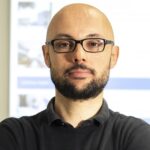Countering summer learning loss is possible
An innovative and novel study in Italy to evaluate the effectiveness of an intervention to counteract learning loss during the long summer school break.
During the summer vacation, students are at risk of forgetting some of what they learned during the previous school year. This is a phenomenon known in the literature as summer learning loss and is an issue of central concern for school policies, particularly in the current post-pandemic context, where there is still heavy learning loss due to prolonged school closures.
This situation has implications also in terms of social equity, as it is likely to be expected that learning loss during the summer months would affect more students who enjoy fewer cultural and educational resources at home.
Unfortunately, despite its relevance, little is still known about this issue. In Italy, there are no studies on summer learning loss, let alone on the effectiveness of possible interventions to counter it. This gap is even more serious if we consider that summer vacations in Italy are among the longest in Europe.
As of 2020, Save the Children Italia and Fondazione Agnelli have conducted a national initiative,Arcipelago Educativo, aimed at countering learning loss in educationally underpriviledged children and teens during the summer break.
The intervention, in its 2022 edition, was aimed at students attending the last two years of elementary school and middle school, offering two types of activities: 88 hours of group teaching workshops inspired by the methodologies of cooperative learning and learning by playing; and 12 hours of personalized tutoring aimed at recovering learning in the subjects (math or Italian) in which gaps are bigger. The intervention took place in nine Italian cities, distributed throughout the country (Milan, Turin, Marghera, Ancona, Aprilia, Bari, Naples, Rosarno, Palermo).
The impact of this intervention on learning was evaluated by the FBK-IRVAPP research team through a randomized controlled trial involving more than 1,000 students.
The results of the evaluation, recently published as an Agnelli Foundation WP, show that in the sample examined there is indeed a learning loss, albeit small, during the summer. The study also shows that this loss is more than offset by the summer intervention. In fact, program participants, return to school in September with higher levels of learning than their peers who did not participate in the intervention. The positive effects of the program are mainly found among elementary school students and those who are reported by schools as having BES (Special Educational Needs) students.
As this is the first study on summer learning loss conducted in Italy, many questions remain open: do the effects found persist over time? Which specific components of the intervention worked best? More studies are needed to address these, and other, open questions, but the research conducted by FBK-IRVAPP gives more than hope that countering learning loss by taking advantage of the summer months is a goal within our country’s reach.
Research team:: Davide Azzolini, Martina Bazzoli, Sergiu Burlacu, Enrico Rettore

